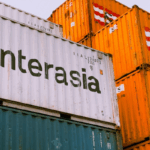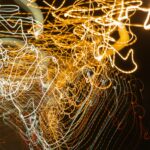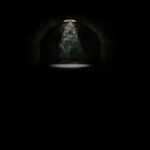In a turn that marks the resurgence of nuclear power, the United States has made an important decision: reopening the Three Mile Island plant, once a symbol of the risks associated with this technology. This bold move reflects a change in public perception and highlights the growing energy demand in the digital age. Thus, the owner of the Pennsylvania-based plant, Constellation Energy, has sealed a two-decade power supply agreement with the technology giant Microsoft.
The resurgence of the atom as an energy source results from a confluence of factors. The proliferation of electric vehicles (EVs), the rise of domestic manufacturing, and, particularly notable, the exponential expansion of data centers fueling the Artificial Intelligence (AI) revolution have highlighted the pressing need for robust and reliable energy sources. In this context, nuclear power is emerging as an increasingly attractive option, offering steady generation free of direct carbon emissions.
Indeed, the nuclear renaissance rests on pillars that respond to contemporary requirements. The need for decarbonization has positioned atomic energy as an indispensable ally in the fight against climate change. Geopolitical volatility, exacerbated by conflicts such as the Russian invasion of Ukraine, has highlighted the strategic importance of energy independence. In parallel, technological innovation, exemplified by the development of Small Modular Reactors (SMR), could revolutionize the sector, presenting safer, more flexible, and economically viable alternatives.
On the global scene, we observe promising trends. While countries like France maintain their historical commitment to nuclear energy, others, such as Japan, are gradually reactivating their reactors. For its part, China leads the world in atomic expansion, hosting almost half of the more than 50 reactors currently under construction.
The global nuclear revitalization landscape offers Argentina a historic window of opportunity. President Javier Milei has stated unequivocally, “I want Argentina to be the fourth artificial intelligence hub in the world.” This vision could position the country at the technological forefront, but it also poses significant energy challenges. Accordingly, opening new nuclear power plants would provide the energy needed to fuel the country’s technological ambitions. It would also serve as a catalyst for innovation in the energy sector.
However, it is crucial to address lingering concerns about nuclear power. James Lovelock, independent scientist, environmentalist, and originator of the Gaia hypothesis, stated:
“Opposition to nuclear energy is based on irrational fear fed by Hollywood-style fiction, the Green lobbies and the media. These fears are unjustified, and nuclear energy from its start in 1952 has proved to be the safest of all energy sources.”
This perspective, supported by empirical data, urges us to re-evaluate our perceptions of nuclear power.
The reality is that modern nuclear power is significantly safer and more efficient than commonly believed. As Spanish physicist Manuel Fernández Ordóñez points out, incidents such as Fukushima and Chernobyl, often cited by detractors, must be properly contextualized. Fukushima has not caused direct deaths in over a decade, while Chernobyl was the result of practices that would be illegal in any modern Western country. Indeed, Fernandez Ordonez argues that “If Chernobyl is anything, it is an opposition to communism and not to nuclear power,” stressing how the inherent shortcomings of the Soviet communist system, with its disregard for safety and transparency, were the real culprits of the disaster, rather than the nuclear technology itself.
In conclusion, the synergy between AI and a renewed nuclear energy strategy could catalyze a virtuous innovation and economic growth cycle. By providing a stable and abundant energy source, Argentina could attract hefty investment in the technology sector and simultaneously drive the development of a cutting-edge nuclear industry, positioning itself as a leader in energy innovation.
* Federico N. Fernández is a visionary leader dedicated to driving innovation and change. As the CEO of We Are Innovation, a global network of 40+ think tanks and NGOs, Federico champions innovative solutions worldwide. His expertise and passion for innovation have earned him recognition from prestigious publications such as The Economist, El País, Folha de São Paulo, and Newsweek. Federico has also delivered inspiring speeches and lectures across three continents, authored numerous scholarly articles, and co-edited several books on economics.
Source: We Are Innovation











